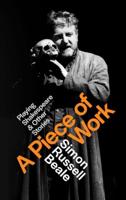Publisher's Synopsis
Excerpt from A New and General Biographical Dictionary, Vol. 5 of 15
In i7oa came out his favourite tragedy, Liberty afferted, in which are fo many fevere firokes upon the french nation, that he thought they were never to be forgiven. He really per fuaded himfelf, as it is related of him, that the king of France would never make peace with England, unlefs the author of Liberty a?erted was delivered up to him and Upon this full perfuafion of his own imnortance, is (aid to have waited on his patron, the duke of Marlborough, when the congrefs was held at Utrecht for'a treaty of peace, to delire that no fnch article might be flipulated, as his being given up. The duke told him, that he was forry he could not ferve him, for he really had no interefk with any of the miniflers of that time; but (aid, that he fancied his cafe was not fo defperate as he imagined that he had indeed made no fuch provifion for himfel'f, yet tould not help thinking, that he had done the French almoft as much damage as even Mr. Dennis himfelf. Another Itory re; lating to this affair is, that walking near the beach of the fest, when he was 'at a gentleman's houfe on the coal't of Suffex, he faw a fhip failing, as he imagined, towards him. Upon this he fufpe�ied himfelf betrayed, and therefore made the' beft of his way to London, without taking any leave of his hoft, but pro claiming him a traitor, who, he faid, had decoyed him down to his houfe, that he might give him up to the French; who had cer'tainly carried him off, if he had not efcaped as he did.
About the Publisher
Forgotten Books publishes hundreds of thousands of rare and classic books. Find more at www.forgottenbooks.com
This book is a reproduction of an important historical work. Forgotten Books uses state-of-the-art technology to digitally reconstruct the work, preserving the original format whilst repairing imperfections present in the aged copy. In rare cases, an imperfection in the original, such as a blemish or missing page, may be replicated in our edition. We do, however, repair the vast majority of imperfections successfully; any imperfections that remain are intentionally left to preserve the state of such historical works.









